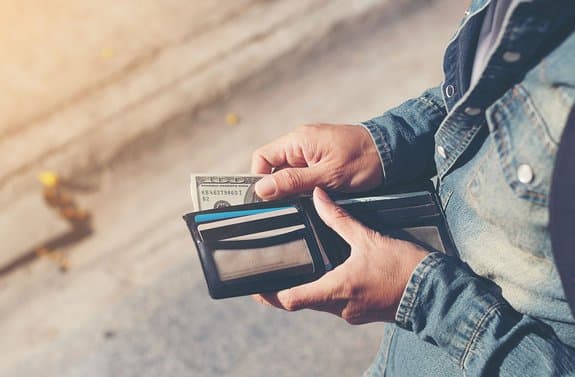
Cashless Canada? Sorry, but no...
The op-ed contributor, Barry Campbell, presents a weak argument based loosely on some truths, perhaps inadvertently, but nonetheless, contributing to the pandemic of misinformation. We unpack the issues within his article here:
Headline
The implications within the headline alone, "The death of cash is a problem for the Bank of Canada", raises three red flags. First, the death of cash is fake news, it would be more credible to start with, "The death of cash would be a problem..." Second, if cash were dead, it would be a problem for everyone, not just one central bank.
"Using cash all or most of the time stands out for me. I’ve never been leveraged by excessive debt and learned, sometimes painfully, to live within my means. As a lifelong tennis player, the adage is never change a winning game – I don’t intend to with my personal financial practices."
Third, if anything, a cashless society would be a much bigger problem for the public than for any central bank. According to cybersecurity experts, if cash were to disappear, "governments and banks could leverage greater control of the economy" and be in the position to impose a surveillance state.
The Twilight Zone example
Campbell's piece begins with a misremembered episode from a popular television series, The Twilight Zone, The Rip Van Winkle Caper (1961).
"In an old Twilight Zone episode, a bank robber stashes stolen cash and has himself cryogenically frozen. A hundred years later, waking up as programmed, his crime long forgotten, he digs up his stash and tries to spend it. No one will take it.
Exasperated, he heads to a bank and brazenly tries to deposit a wad of bills. “What’s this?” a perplexed teller asks. “It’s cash!” says the somewhat impatient bank robber. “Cash?" says the teller. “That hasn’t been used for decades. Sorry, it’s worthless."
That cashless day is upon us. We didn’t have to be frozen to find that out – just frightened.
In the actual episode, four bank robbers stash stolen gold bricks (not cash) to take with them into the future. Whether or not they would have been able to trade the gold at a bank is never addressed, since none of them make it out of the desert and into town. Only one robber makes contact with civilization when a couple driving along the road find him breathing his last breaths. Immediately, he tries to offer his last bar of gold in exchange for water and a trip to town, but before they can respond, the robber dies from exhaustion. After checking his vitals, and declaring him (not cash) as dead, the couple drive off. One of them wonders why he was trading with gold when it has been manufactured artificially for a century, and the other answers that "it was once used as money". And yet, the form that money takes in this fictitious future, be it, cash, social credit, cryptocurrency, something new or a mixture, is never revealed.
The COVID-19 warning
Mr. Campbell then moves on to the coronavirus pandemic, but doesn't name any sources to back up his arguments. While it is true that infectious disease specialists have said that the virus can stick to surfaces, that doesn't mean that this is how the disease is spreading. The corona virus spreads through airborne droplets (coughing, sneezing etc., hence the social distancing). Further studies have found that cash is, in fact, a lower risk than phones, cards, pin pads and tables. Read more.
If people could be frightened out of using cash, as Mr Campbell claims, it would be as a result of irresponsible communications from trusted sources and disingenuity disguised as journalism from the cashless lobby. Read more.
It is true that the central bank of Canada has been defending the use of cash since before the virus, but it is not true that cash use has declined during the crisis. Cash demand is actually going up, e.g. as noted in Europe by the ECB and India by the RBI. Cash continues to be the world's preferred payment form in good times, and in bad. If we could ask the characters from the Twilight Zone episode, they would probably have opted to carry cash across the desert instead of gold, had they had the choice.



